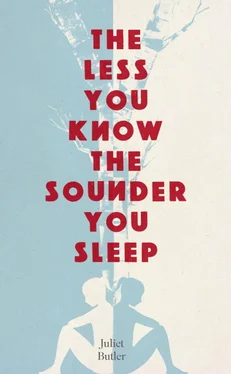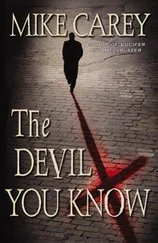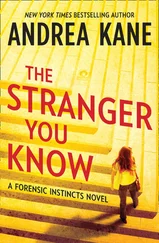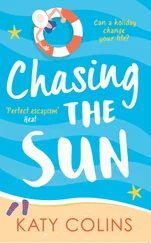‘I keep telling you, I can’t call an ambulance until Zlata gets here,’ he mutters, staring down at his scuffed shoes. He can’t bring himself to look at us. I think Aunty Nadya’s going to shake him. Shake some humanity into him. But instead she shrieks again and starts tearing at her hair.
‘ Aaakh! It’s ten twenty, every minute counts, every second counts! Dasha – when did she first feel the pains, quick, stop crying, this is important. When?’ ‘S-s-six o-clock. W-e were w-watching the n-news.’ ‘Right. That’s what… sixteen hours ago. Sixteen hours. Listen, you,’ she turns to Victor Yanovich. ‘If an ambulance isn’t here within ten minutes they will die and then I will tell the world’s press what happened here. I will get you fired. I will hold you personally responsible – not Zlata Igorovna, not the Administration, but you. You will never practise again. I will never let this rest.’ He bites his lip, thinking, then picks up the phone and dials.
‘I’m a duty doctor at the Sixth Home for Veterans of War and Labour. I need an ambulance. Urgently.’ He puts the phone down.
‘Heaven be praised!’ cries Aunty Nadya. ‘Come on, Dasha, get ready. What do you need, they’ll be here in minutes.’
I wipe the tears off my cheeks.
‘Wait, wait, Aunty Nadya, can you bring the lemon tree in? It’s on the balcony. Can you just bring it in? It’s cold out there.’
She stares at me as if I’ve gone mad. ‘Dashinka, we’re fighting for a life here.’
‘It’s Masha’s lemon tree,’ I explain. ‘She calls it Lyuba.’
‘What on earth are you talking about?’
‘Please, Aunty Nadya.’
‘Oh very well. Very well.’ She flings open the balcony door, grabs the plant and plonks it on the bedside table next to me. Nearly all the leaves have fallen off in the harsh frost and the few remaining ones drift down on to the varnished table.
‘Aunty Nadya,’ I say, picking them up and putting them carefully back into the pot.
‘What, Dashinka? What?’ She’s rushing round putting some clothes and toiletries into a bag.
‘Remember to water her lemon tree. You will remember, won’t you.’
She stops then for a moment and looks me in the eye.
Yes, yes, Dashinka, of course, of course I’ll remember. Right, come on, there’s the ambulance siren. What else do you need?’
I reach under the pillow. It seems stupid but I know they won’t lock the door after us and I don’t want to leave his letters. They’re airmail letters, like tissue papers tucked neatly inside an envelope. I fold them into my hand. I look at them every single day. Masha laughs at me but I do.
It’s almost like I’m taking him with me.
The First City Hospital
Masha dies in the ambulance.
One minute her heart is pulsing back to mine. The next it’s not.
They’re rushing us through the corridors of the hospital, shouting and panting, with their white coats flapping. We’re being taken to the Reanimation Unit.
I’m on my own and I’m dying. You’ve gone, my Masha.
Two nurses are running along with us, one on each side. They’re talking, their voices muffled through their surgical masks:
How long has she got?
God knows.
What do we tell her?
Nothing of course. Tell her nothing.
The nurse bends over me and speaks loudly and slowly.
Masha’s fine, she’s just sleeping, that’s all.
I start crying.
Hush, hush, she’s getting better now, the doctors said…
They cut our clothes off us with a knife and lay us on a slab in the Unit.
Quick… get an oxygen mask onto her… intravenous drip to counter the cadaveric toxins… decomposition starts within minutes.
Toxins? I pull on someone’s sleeve. I don’t understand. Is she poisoning me? My Masha? Is that how I die?
I want an injection, I want a sleeping draught. Father Alexander said you’d give me a…
Now, now, they’ll bring you some soup soon… Would you like some soup? We’ll give some to Masha too. She’s getting better now… getting better…
I’m so scared. I’m the one who’s been left with the knowledge that I’m dying. We never knew which one it would be. But I’m glad it’s not her.
I’m the stronger one.
Aunty Nadya – I want her, I look around the bare white room. Where is she? They wouldn’t let her in the ambulance… please come, please come…
Haemorrhaging into her sister… hook her up to the monitors… fascinating… observe… monitor this…
I ache all over. Weak, dizzy, they’re wiring me up to sharp, shiny instruments, freezing me, freezing, freezing… in the Spring snow… sunshine…
Now someone’s stroking my arm… an old nurse… it’s Mummy… You’re going now, Dashinka, you’re going… go in peace… say goodbye…
My fingers open and I let go of Masha, and the letters in my other hand fall away…
I pull back the covers and step down from the bed. Slava’s side is warm, he’s only just left for the meadow with the cattle. I walk across our bedroom and breathe heavily on the frosty window until I can see him down there, standing among the willow trees in the white rising mist. It’s going to be a beautiful day today, I know it. The children are asleep. Let them sleep. I get up, reach for my coat, open the door and go out to meet him.

It took Masha seventeen hours to die following the onset of her first symptoms, and Dasha another seventeen hours to die following Masha’s death. She was not given her ‘sleeping draught’ but died of blood poisoning. They were cremated at their own request (‘We don’t want scientists poking about in us even after we’re dead,’ as Masha put it). The funeral was attended by Aunty Nadya, a handful of staff from the Stomatological Institute – and an army of journalists. The twins are interred in the Novodevichy Cemetery in Moscow where Aunty Nadya – and, ironically, Anokhin – are also buried.
This novelization of the true life story of Masha and Dasha Krivoshlyapova is based on my close fifteen-year friendship with them. I first met Masha and Dasha in 1988 when I walked into their room in Moscow’s Stomatological Institute to interview them for the Sunday Times Magazine, after having seen them on the Vzglyad TV show. They nicknamed me ‘Joolka’. Later they asked me to ghostwrite their autobiography – heavily edited by Masha – which was published (outside Russia) three years before their death.
Almost all of the events in this book actually happened, as described to me in taped conversations and interviews with the twins, their friends, their carers and doctors. I have written The Less You Know … in Dasha’s voice because I felt more empathy for her than Masha, and believed that as the ‘silent sister’ she should finally be allowed to tell her own story.
Although I knew her so well, I was frustrated at never being able to have a one-to-one honest conversation with her, because Masha, the guard dog, was always present. Her best friend was, by necessity, always going to be Masha, whether she liked it or not. There were a few occasions, when I spent the night with them, when Masha fell asleep while I was talking to Dasha, and then I was able to see glimpses of her own thoughts. But they were only glimpses. She was afraid of Masha and, therefore, like many people trapped in an abusive relationship, loyal to her. But despite this, they still had a strong sibling bond and were natural allies against the world.
Читать дальше
Конец ознакомительного отрывка
Купить книгу













